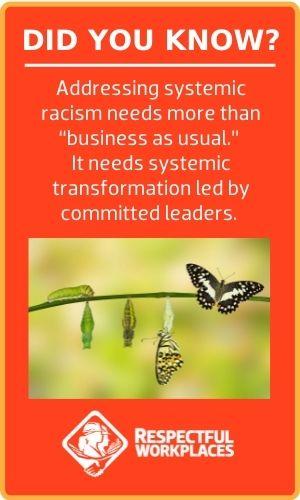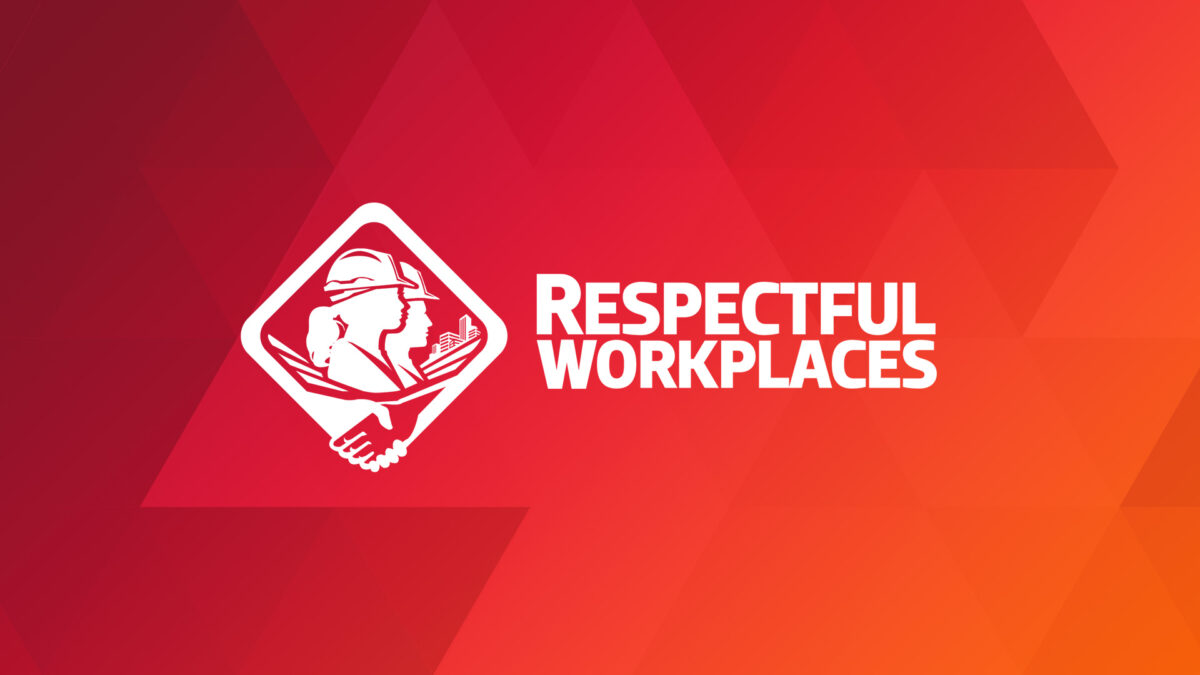Does your organization set inclusion goals capable of transforming your organization?

A new year is always a time for reflection, both on the previous year and what is in store for the future. Globally, organizations will be reflecting on how the COVID-19 pandemic affected their operations, and how to move forward.
The pandemic also highlighted inequities in society. Women, Black, Indigenous, and People of Colour were more susceptible on average to the effects of the pandemic due to lower incomes, employment in front-line essential occupations, precarious employment, overcrowded housing, and limited access to health and social services. These inequities added to the concerns of many, especially younger workers, about other social ills such as climate change events and access to health care.
According to the 2021 Deloitte Global Millennial Survey, millennial and Gen Z workers see corporations as deeply implicated in these social ills, from pollution to poverty, to discrimination and inequality.
The number of millennials who believe that business has a positive impact on society was 47%, marking the first time that figure has dipped below 50%. Like Millennials, fewer than half of Gen Z workers see business as a force for good in society. The report also found that 44% of millennials and 49% of Gen Zs have made choices over the type of work they are prepared to do or organizations they would work for based on personal ethics.
These findings reflect expectations that companies should be doing more than only seeking profit: they should be integrating a social-policy agenda into their operations. This is referred to as “stakeholder capitalism” in which companies consider many stakeholders, even those outside of the business, in developing their strategies and managing their operations.
This model requires bold action from leaders who recognize that their business operations may be contributing to social ills such as systemic racism and other forms of discrimination. For example, research has shown that higher than average unemployment rates in Black, Indigenous, and People of Colour communities can be related to systemic bias in recruitment processes. (For a discussion of systemic bias in recruitment, please refer to Blog #53).
Organizations around the world that are successfully creating inclusive workplaces are doing just that. They recognize that in order to become more inclusive, they must set transformational goals that challenge their assumptions about the role of their business.
January 2022 may be a good time for an honest self-assessment by leaders about the effectiveness of their organization’s inclusion efforts. Successful inclusion initiatives need bold action and systemic transformation led by committed leaders. By measuring themselves and their organizations against the benchmark practices of inclusive organizations, leaders can gain a full picture of the scope and practical measures needed to address systemic racism and other forms of discrimination.
Five core business activities that are critical for creating a transformational inclusion initiative
Research has identified five core business activities that are critical for creating a transformational inclusion initiative. They include:
1. Foundational activities that provide a set of values to guide individuals in their priorities and decision making.
These include the vision and strategy that make a connection between the values of the company and inclusion, as well as measures of leadership accountability and establishing budgets and structures to support the initiative.
2. Internally focused activities such as recruitment, retention, and advancement.
These are evaluated and re-worked to ensure that processes and decision are free of bias. Inclusive practices might include building relationships with community groups to address employment barriers, and training that builds awareness and skills to support an inclusive workplace.
3. Externally focused activities such as new projects and service delivery.
Inclusive practices include ensuring that the needs of affected communities are addressed or that stakeholders in the supply chain are seen as partners in creating an end-to-end inclusive workplace.
4. Marketing and communication activities.
These are reviewed and re-worked to promote awareness of the organization’s inclusion initiative inside and outside the company and reflect images and priorities that are meaningful to those of different genders, backgrounds, and circumstances.
5. Assessment, measurement and continuous improvement activities.
These activities ensure that tangible goals are set and can be measured and continuously improved. An inclusion initiative cannot be successful over the long term without relentless monitoring, yet these activities are often overlooked.
Not every organization has sufficient resources to focus on every business activity all at once; however, like any process of transformation, success starts with an honest assessment of what is possible now, what future objectives must be addressed to move the organization toward continuous improvement, and establishing tangible goals for each stage.
As 2022 begins, leaders and managers are being called upon to go further and take bold action to address systemic racism and other forms of discrimination. “Business as usual” is no longer enough; it needs systemic transformation led by committed leaders.
Leaders and managers committed to transformational inclusion will find help in the BuildForce Respectful Workplace Online Self-Assessment Tool. It can be used as a blueprint and scorecard to guide this transformation.
The self-assessment provides a comprehensive program of inclusion benchmarks. The scoring for each benchmark allows organizations to measure their progress over time, and anonymously, against other construction organizations. Organizations can complete the self-assessment as often as their planning cycle requires.
The BuildForce Respectful and Inclusive Workplace Toolkit provides a suite of tools based on the proven practices of respectful and inclusive organizations:
• Online Self-Assessment Tool
• Policy Framework and Implementation Guide
• Working in a Respectful and inclusive Workplace online course
• Introduction to Understanding Systemic Racism – A Guide for Leaders and Managers online course
For more info:
- Centre for Global Inclusion, The. Global Diversity, Equity & Inclusion Benchmarks: Standards for Organizations Around the World. 2021.
- Deloitte. “Deloitte Global 2021 Millennial and Gen Z Survey.” See: www2.deloitte.com/global/en/pages/about-deloitte/articles/millennialsurvey.html
- Kaplan, Sarah. The 360⁰ Corporation: from Stakeholder Trade-offs to Transformation. Stanford University Press, Stanford, California, U.S., 2019.
- Public Health Agency of Canada. “CPHO Sunday Edition: The Impact of COVID-19 on Racialized Communities.” February 21, 2021. See: www.canada.ca/en/public-health/news/2021/02/cpho-sunday-edition-the-impact-of-covid-19-on-racialized-communities.html
Read from the beginning. Click here to start at Part 1.
What can an effective Respectful and Inclusive Workplace Program deliver?
- Become an employer of choice – attract, retain, and advance top talent from all sources of labour
- Unlock collaboration and innovation – create high-performing teams through diversity of thought and experience
- Build your brand – your organization will gain a competitive edge as a leader and innovator
Get started today!
The BuildForce Canada Online Respectful and Inclusive Workplace Toolkit includes:
- the Respectful Workplace Online Self-Assessment Tool to assist organization leadership in assessing their current situation and identifying where they may need to make changes
- the Respectful Workplace Policy Framework and Implementation Guide to assist organizations in creating and implementing a policy that supports a respectful and inclusive workplace
- the Respectful Workplace Online Training Course to train workers on how to create and support a respectful and inclusive workplace
- the online course Introduction to Understanding Systemic Racism: A Guide for Leaders and Managers
All the resources you need to create and support a respectful and inclusive workplace!

Respectful and Inclusive Workplaces
